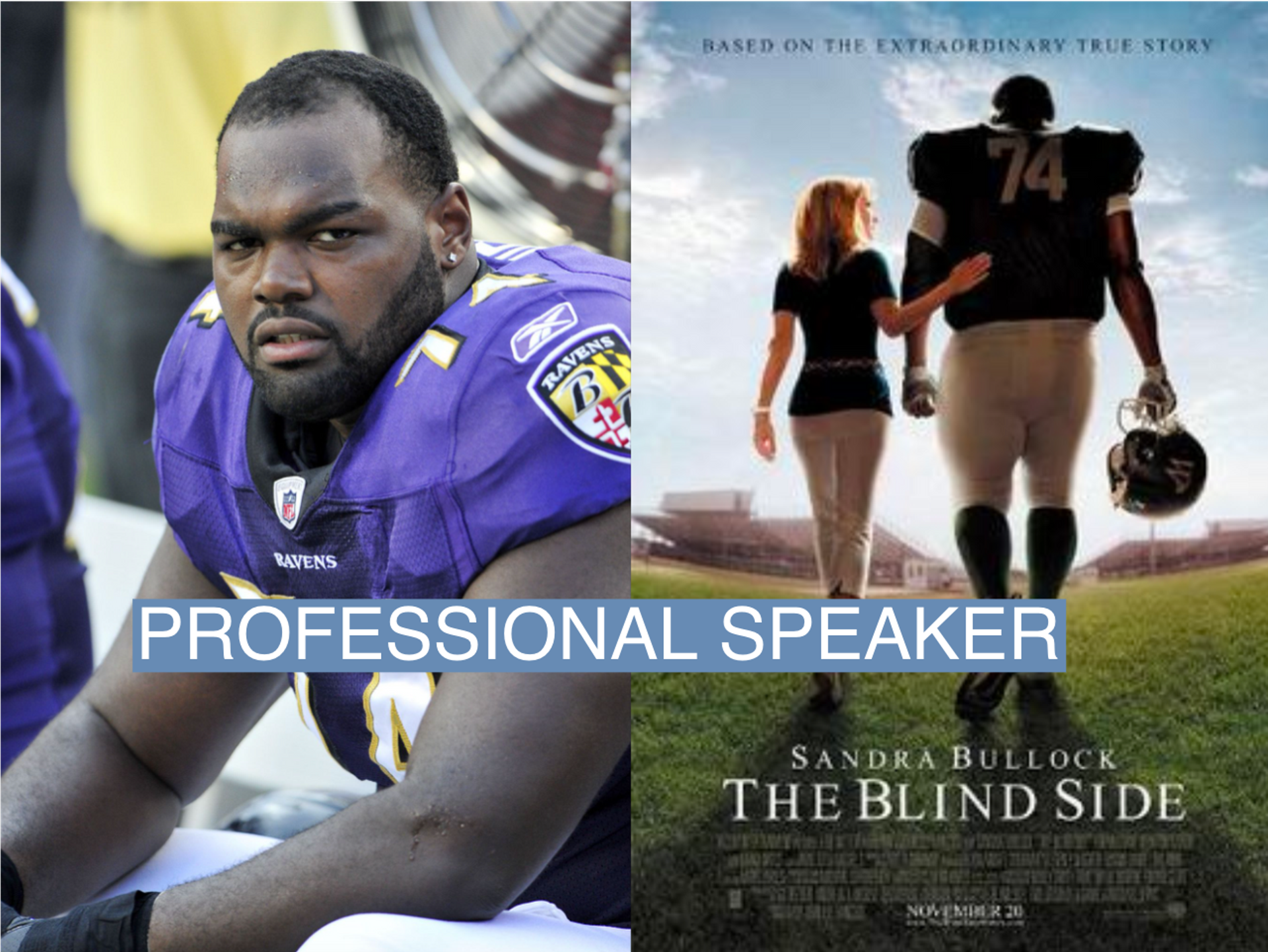The News
The nonfiction hitmaker Michael Lewis has made a career of minting ordinary heroes, a practice that exploded into public acrimony last week when the football player depicted in The Blind Side sued the family who took him in.
But film rights aren’t the central revenue stream in Lewis’s unique run of creating public figures. The author has also adopted the unusual practice of shepherding his subjects into lucrative careers as public speakers, managed by his speaking agent and appearing beside him at public events.
For the past decade and a half, Lewis has been represented for speaking engagements by Greater Talent Agency, which books events for high-profile speakers and was bought by UTA in 2017. Over the years, Lewis’s books proved to be a farm team for Greater Talent speakers: The speaking agency also represented half a dozen other people heavily featured in Lewis’ books, including Moneyball subjects Billy Beane and Paul DePodesta, Flash Boys’ Brad Katsuyama, and The Big Short’s Steve Eisman, whose agency biographies cite Lewis’s books.
Greater Talent also represented Sean and Leigh Anne Tuohy, as well as Michael Oher, the main characters in the movie The Blind Side. Both the Tuohys and Oher asked for up to $50,000 per speaking engagement, according to two people familiar with the requests.
“In a delightfully open and engaging presentation, the Tuohy family invites audiences to go behind the scenes of The Blind Side with a heartwarming message: “In our house, we believe in miracles,” one promo for a speaking engagement with the Tuohys read.
Lewis’s relationship with the Tuohys is under scrutiny following a lawsuit last week filed by Oher in which the former professional football player alleged that the Tuohys lied about adopting him, and reaped millions from their conservatorship of him and using his life story without appropriately compensating him.
In an email to Semafor, Lewis said that he was uninvolved in the speaking process, saying “when book or magazine subjects ask me what to do with some lecture offer I receive I just refer them to either Don Epstein or David Evenchick,” who have both had leadership roles booking speakers for UTA.
In an interview with the Washington Post, Lewis mentioned that when he spoke to Oher two years ago, the former NFL athlete asked him to help him find paid speaking gigs, a prospect that Lewis said he raised with his agent. (Lewis is currently represented by CAA.)
In this article:
Max’s view
Writers and agents told me that Lewis’s speaking ecosystem appears to be unique even among high-profile American nonfiction writers.
Asked about whether he had helped any of his subjects get speaking gigs, Going Clear author Lawrence Wright said he didn’t know about any such arrangement (or have an opinion on it). Rebecca Skloot, who told the story of Henrietta Lacks and her “immortal” HeLa cells, said she set up a nonprofit for Lacks’ family but did not give them money directly, as she didn’t feel it was journalistically appropriate.
Beth Macy, who wrote several popular books about pharmaceutical companies and outsourcing, said that her speaking agent never approached her about signing one of the subjects of her book. But she said she voluntarily split the proceeds of her speaking gigs and film options with her subjects.
“These were voluntary moves on my part. Nothing that an agent was involved in, except to tell me, ‘No one gives their TV option money to their subjects, you know that, right?’” she said in an email.
Notable
- The Tuohys have pushed back hard against Oher’s lawsuit, saying that they only became Oher’s conservator to satisfy the NCAA, which helped him play college football for Ole Miss, and the family did not make any more money than Oher did from the film adaptation of the Blind Side.
- While most news organizations prohibit paid public speaking, a string of new digital media outlets have used access to paid public speaking as a way to keep talent away from the more prestigious legacy media brands. Axios and congressional news startup Punchbowl both allow their reporters to participate in paid speaking gigs.
